Search
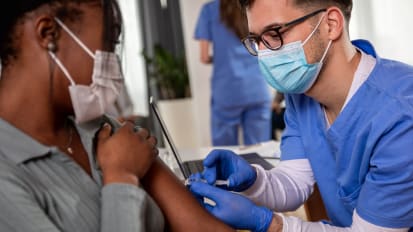 Video
Video
Getting to the Heart of COVID: Do Infections or Vaccines Cause Cardiac Harm?
Cardiologist Clifton Watt, MD, offers new insights on the pathogenesis of heart problems resulting from COVID; breaks down the evidence on whether novel treatments – neutralizing antibodies and antivirals – have therapeutic or preventive value; then presents a risk-benefit analysis for the available vaccines, incorporating new data. Video
Video
Get Current on COVID: The Evidence on Vaccine Efficacy and Strategies for Immunocompromised Patients
A panel of experts answers all the current questions on breakthrough infections, who needs boosters, whether to keep recommending masks, and the future of variants, with a spotlight on meeting the needs of the immunocompromised, such as organ transplant recipients and cancer patients. Bonus: what to know about molnupiravir to treat COVID-19. News
News
UCSF Post-COVID Clinic Treats Long Haulers
UC San Francisco’s OPTIMAL Clinic (pOst-covid-19/PosT-Icu MultidisciplinAry cLinic) is one of the first clinics in the country established to provide follow-up care for patients who have recovered from COVID-19. The clinic’s goal is to optimize patient recovery through a centralized resource designed to coordinate with primary care services. News
News
COVID-19 During Pregnancy Associated with Preterm Birth, UCSF-Led Study Finds
Pregnant people infected with COVID-19 face an increased risk of very preterm birth (VPTB), preterm birth (PTB) or early term birth, according to a large population-based study led by researchers at UC San Francisco. Video
Video
COVID Update: Experts Answer Questions on Boosters, Everyday Risks and What the Future Holds
An expert panel mines the latest data to discuss the COVID-related issues on patients’ minds News
News
Olfactory Loss from COVID-19 Infection: Cause and Treatments Studied at UCSF
Complete (anosmia) and incomplete (hyposmia) smell sensitivity impairment are widely reported indicators among the many symptoms of COVID-19 infection. Quality of life can be substantially impacted by the loss of taste and smell, with possible effects including depression, loss of appetite, and safety risks from lack of awareness of gas leaks, smoke or spoiled food. The path to recovery of taste and smell varies widely among affected individuals. Video
Video
Long COVID: A New Way to Look at a Growing Problem
Synthesizing multiple studies, pulmonologist Brian Block, MD, reveals which patients are at risk for lasting symptoms from infection with the coronavirus (it’s not who you might think). Document
Document
UCSF MD Link: Web-Based Communication Portal for Physicians
Our web portal allows referring physicians to securely access their patients’ entire electronic health record, make online referral requests and communicate with our physicians directly and securely. Video
Video
COVID Long Haulers: Identifying and Managing Patients With Lingering Symptoms
Predicting which COVID patients will have a post-recovery problem – or what the problem will look like – is tricky. This guide, based on the data, helps doctors follow up in the optimal time frame and by asking the right questions Video
Video
COVID Care and Control: How to Use What We’ve Learned So Far
Pulmonologist Brian Block, MD, submits an enlightening analysis of U.S. COVID data, including his own work examining mortality in overburdened hospitals.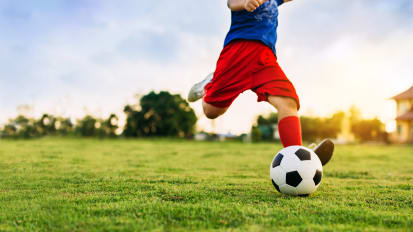 Video
Video
A Surge in Sports Stress: How to Support Child Wellness During COVID
Sports specialization and misguided parenting practices have led to undue stress on athletic youngsters, with physical and psychological consequences now exacerbated by the quarantine.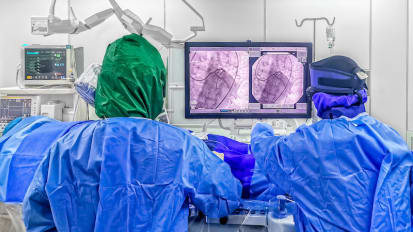 Video
Video
COVID-19 Consequences: Is the Ticker a Ticking Time Bomb?
Cardiologist Clifton Watt, MD, explores what’s now known about the SARS-CoV-2 variants as well as COVID-related multisystem inflammatory disorders, explains COVID’s potential for residual effects on the heart, and offers help with identifying COVID “long haulers.” Bonus: update on outpatient therapeutics.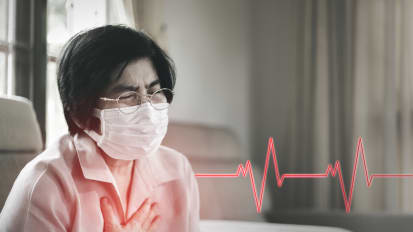 Video
Video
Comorbidities and COVID: Care for Patients With Heart Disease and Other Conditions
Breaking down the latest stats, cardiologist Clifton Watt, MD, sheds light on which chronic conditions raise the risk of serious consequences from COVID-19 infection. Video
Video
Keep Them on Their Feet: Vigilant Diabetic Care Saves Limbs
In response to rising rates of diabetes and related amputations, the co-directors of UCSF’s Center for Limb Preservation – which has a limb salvage rate of 92 percent – present a quick guide to detecting amputation risk. They include COVID-specific advice to prevent delays in diagnosis and referral. Video
Video
Get Current on COVID: Case Trends, Flu Season Strategies and Mask Facts
Pulmonologist Brian Block, MD, provides an analysis that clarifies risk factors, in terms of both patient and hospital status. He also discusses how to manage coming flu-related challenges and offers evidence on masking efficacy for both disease spread and severity. Video
Video
COVID Fear and Heart Attacks: Addressing New Obstacles to Care
COVID fear has worsened outcomes for the most dangerous type of heart attack. Interventional cardiologist Krishan Soni, MD, discusses how to respond to the new obstacles and reestablish safe, efficient pathways to lifesaving treatment. Video
Video
Our Cardiologists Address Consequences of the COVID Crisis
The pandemic has both led to delays in heart attack treatment and highlighted racial disparities in health care. Our specialists look at facts and possible solutions. Plus: an update on managing COVID patients at risk of thrombosis and other inflammatory conditions. Video
Video
Asthma Update: 2020 Treatment Guidelines Plus COVID-Appropriate Strategies
Allergist and immunologist Monica Tang, MD, presents the latest on this common condition, from key diagnostic factors and therapeutic choices to which patients should be seen in person during the pandemic. She also gives a glimpse of asthma preventives on the horizon.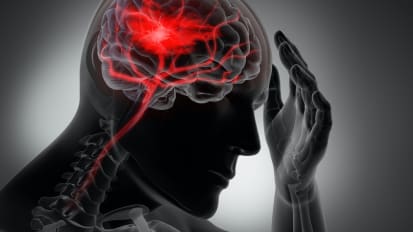 Video
Video
Stroke and COVID-19: Connections, Concerns and Care
Answering questions from both patients and doctors, our neurovascular disease experts discuss the higher risk of clotting disorders associated with severe SARS-CoV-2 illness and how to manage these cases.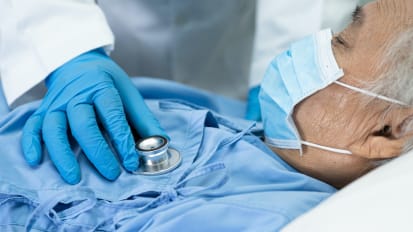 Video
Video
Care of Geriatric Patients in the Time of COVID-19
UCSF geriatrician and pulmonologist Leah Witt, MD, discusses how to identify high-risk senior patients, the most common course of the disease, useful monitoring methods and important follow-up on hospitalized patients after discharge. Video
Video
Our Response to COVID-19: Lessons From the AIDS Epidemic
Renowned UCSF HIV/AIDS expert Paul Volberding, MD, who helped pioneer antiretroviral therapy, shares his insights on how the medical community can best respond to the current pandemic. He explains similarities and differences in the health care challenges and emphasizes the value of collaboration. News
News
The Coronavirus Disease 2019 Global Pandemic: A Neurosurgical Treatment Algorithm
The COVID-19 pandemic is disrupting neurosurgical care at medical centers throughout the United States. News
News
Neurosurgical Treatment Algorithm During the COVID-19 Pandemic
As medical centers across the world prepare for and respond to the COVID-19 pandemic, guidelines for providing vital care, while protecting the safety of both patients and health care workers, are increasingly critical.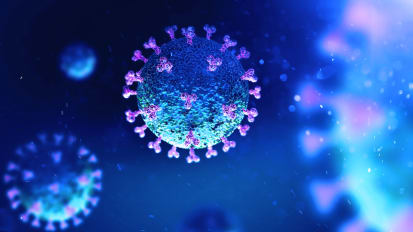 Video
Video
Exploring Potential Treatment Options for COVID-19
Annie Luetkemeyer, MD, professor of infectious diseases at UCSF, is an expert on the treatment of viral infections. On March 24, 2020, Robert Wachter, MD, chair of the Department of Medicine at UCSF, interviewed her on the evidence behind potential treatments for COVID-19 as well as how to assess new and existing drugs in a pandemic.

